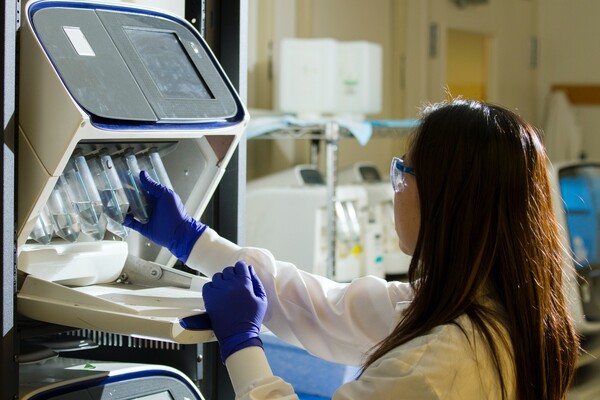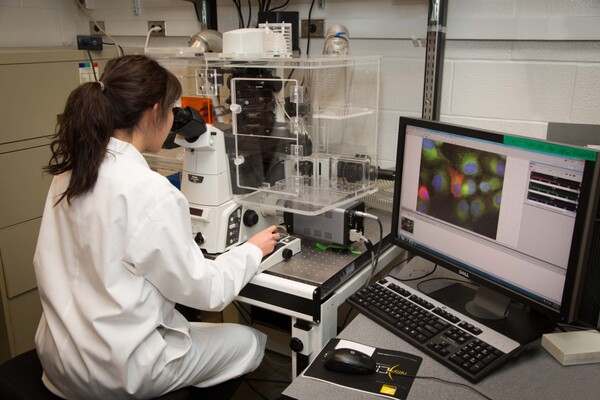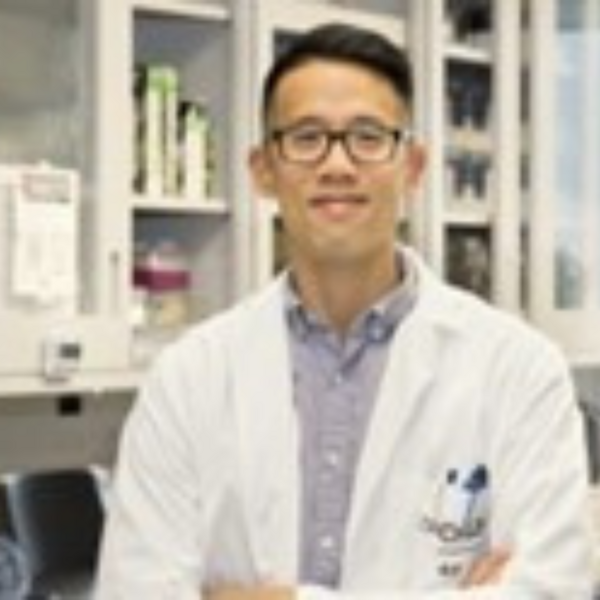
Main Second Level Navigation
Breadcrumbs
Physiology
MSc & PhD
The Department of Physiology is dedicated to understanding fundamental physiological processes and translating these to clinical care. It is home to the discovery of insulin, the scientific intuition and curiosity that led Banting and Best to their seminal studies of diabetes.
Our research-based MSc and PhD programs provide advanced training in physiology and significant experience conducting research in a lab. Under the direct supervision of a member of our world-class faculty, students will apply modern experimental methods to further discover and understand of the systems of the human body. Students will also broaden and deepen their knowledge through coursework and seminars. Both programs culminate with an oral defense of a written thesis based on original research.
Our Programs

In addition to completing a thesis, students take 1.5 FCE*:
- PSL 1000H (MSc Seminar in Physiology, 0.5 FCE)
- A graduate physiology course (0.5 FCE)
- Elective course (0.5 FCE)
Students successfully finish this program in 2 years.

In addition to conducting independent and original research that will form their
thesis, students complete 2.5 FCE:
- PSL 2000H (PhD Seminars in Physiology, 0.5 FCE);
- PSL 1066H (Research Grant Proposal, 0.5 FCE) and
- A physiology graduate course (0.5 FCE)
- Elective course (1.0 FCE)
Typically, students successfully complete this program in 6 years.
Alumni Profile

Gareth Lim, PhD
During my time in the Department of Physiology, I was amazed by the encouraging and stimulating environment offered by trainees and faculty members. I had the opportunity to grow scientifically and realize my own independence as a researcher.
My advice is to always be willing to ask questions and remember there are never right or wrong questions. Questions may lead to unexpected discoveries that can open new areas of research. It was this line of thinking that led to my interest in the physiological functions of 14-3-3 proteins, which remains the primary area of research in my lab today. I currently lead my own lab at Université de Montréal, where I focus on new treatments of metabolic diseases, including diabetes and obesity.
Potential Career Paths
In 2022, the School of Graduate Studies (SGS) tracked the career outcomes of 5,128 PhD students who graduated from the University of Toronto between 2016 to 2021. The data below is from 70 physiology PhD graduates.
Positions
Some examples of the positions our physiology graduates held included:
- Biotechnology and pharmaceutical jobs
- Hospital-based jobs
- Postdoctoral fellowships
Employers
Some examples of employers for whom our physiology graduates worked included:
- The University of Toronto
The chart below shows a percentage breakdown of the various sectors in which our physiology PhD graduates worked at the time the survey occurred.
Main Employment Sectors of Physiology PhD Graduates
Chart data
| Post-Secondary Education | Private Sector | Public Sector | Charitable Sector | Individual Sector | Info Not Public/Other |
|---|---|---|---|---|---|
| 34.3 | 30.0 | 12.9 | 2.9 | 1.4 | 18.6 |
By the Numbers
Department of Physiology
*Full course equivalent. A typical 0.5 FCE is over one term (13 weeks), meeting 1-2 times per week. A typical 1.0 FCE is over two terms (26 weeks), meeting 1-2 times per week.